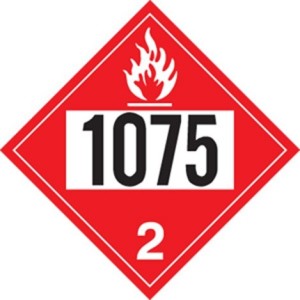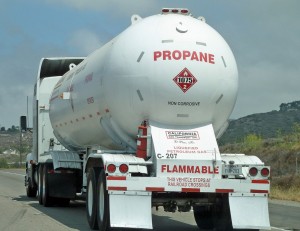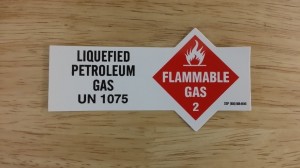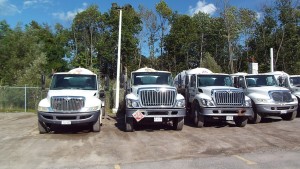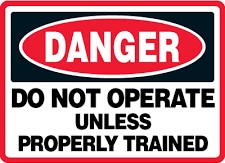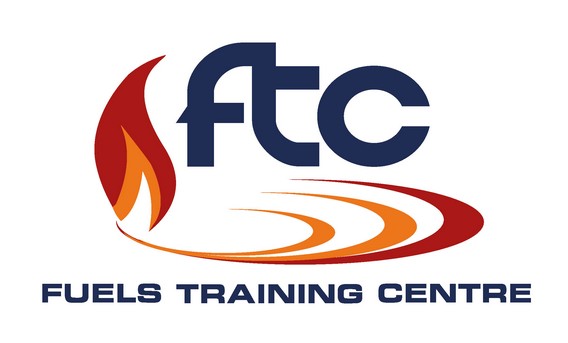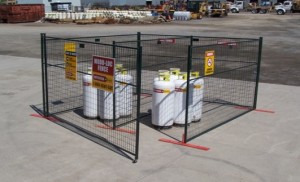So what does the term “training” really mean within the context of the propane industry? As a general rule, we usually think of training as an event where an individual learns the skills required to conduct job-specific tasks safely. The student attends a training course, passes a written exam and has their newly acquired skills verified in a hands-on evaluation conducted by an authorized instructor.
The process of getting propane from the refinery into the customer’s storage container involves many tasks which must be conducted by skilled individuals. Over the years, industry has worked closely with the enforcing authorities to define job-specific training requirements. As a result, there are many recognized training programs available to assist propane retailers and transporters in ensuring their employees acquire the necessary skills. Fortunately, many of the skills can be acquired through training courses with durations of one day or less. The resulting ROT certificates expire three years following the training, and the enforcing authorities require students to recertify.
Theory Training versus Skills Training
It’s important to remember there are two primary categories of training – theory training and skills training. With theory training, the student gains knowledge about specific topics and a variety of methods can be used to transfer knowledge to the student. With skills training, the student must learn the specific steps to complete a task, see demonstrations of the correct procedures, practice doing it themselves under the supervision of a qualified person and then successfully demonstrate their ability to complete the task on their own. There are a variety of delivery methods which can be deployed to support the learning process.
Effective Training Starts with a Training Plan
 A Training Plan is required to identify the training each job function requires, identifies which job functions require what training, tracks which employees have and have not received the necessary training and provides notification when a certificate or Record of Training is to expire so retraining can be scheduled. Also, the Training Plan addresses Recognized Prior Learning (RPL) for qualifications, which involves the assessment of any existing relevant skills and qualifications. Finally, the Training Plan outlines who will deliver the training, the best method of training delivery, and when and where the trainee needs to go to receive the structured component of the training.
A Training Plan is required to identify the training each job function requires, identifies which job functions require what training, tracks which employees have and have not received the necessary training and provides notification when a certificate or Record of Training is to expire so retraining can be scheduled. Also, the Training Plan addresses Recognized Prior Learning (RPL) for qualifications, which involves the assessment of any existing relevant skills and qualifications. Finally, the Training Plan outlines who will deliver the training, the best method of training delivery, and when and where the trainee needs to go to receive the structured component of the training.
Many organizations use internal Learning Management Systems to track these details.
The Training Plan must identify:
- the knowledge and skills to be obtained;
- the time-frame for achieving the knowledge and skills;
- the training to be undertaken;
- the delivery modes to be employed;
- the details (when, how and how much) of the time allocated outside routine work duties is for off-the-job training;
- who is responsible for the delivery of training and the assessment of the knowledge and skills;
- the arrangements required to conduct the training and assessment;
- what document will serve as the Record of Training;
- which skills require retraining; and
- how skills or knowledge will be updated if underlying regulation, instructions or equipment changes during the currency of an existing Record of Training.
Training Delivery Methods
There are a variety of delivery methods used within the propane industry to provide employees with the training they require. Some methods are more effective than others in achieving the various learning objectives. During the design phase of the Training Plan, the different methods are examined to determine their appropriateness for the learning objectives. Once the best methods are determined, they are applied to the training plan in the development phase.
Classroom Instruction
 Traditional classroom instruction continues to be the primary teaching method of choice within the propane industry. Students can be scheduled to attend planning courses conducted by qualified individuals. Theory training is addressed in the classroom while skills demonstration, practice, and validation occur outside with the equipment students will use in their job functions. Classroom instruction is provided by individuals who have been trained on how to conduct effective classroom instruction and how to train adults. When delivered by a skilled instructor, classroom training is extremely effective. However, timing, geographic location, and urgency of training may require other methods. When it comes to propane handling skills, the Authorities Having Jurisdiction also prefer classroom instruction since content and instructor skills can be prescribed and evaluated.
Traditional classroom instruction continues to be the primary teaching method of choice within the propane industry. Students can be scheduled to attend planning courses conducted by qualified individuals. Theory training is addressed in the classroom while skills demonstration, practice, and validation occur outside with the equipment students will use in their job functions. Classroom instruction is provided by individuals who have been trained on how to conduct effective classroom instruction and how to train adults. When delivered by a skilled instructor, classroom training is extremely effective. However, timing, geographic location, and urgency of training may require other methods. When it comes to propane handling skills, the Authorities Having Jurisdiction also prefer classroom instruction since content and instructor skills can be prescribed and evaluated.
1-on-1 Instruction
Often, the quickest way to get a new hire trained is to provide 1-on-1 instruction, which is highly effective when the person (often the immediate supervisor) is already a skilled instructor and can impart years of experience to the instruction. So long as the prescribed materials are fully covered, and the evaluation of the student (both with a written exam and hands-on skills evaluation) meet the criteria of both the curriculum provider and the Authority Having Jurisdiction, then this method can be very effective.
Self-Study
When we refer to self-study, we are referring to the student reviewing the theory outside of the formal training event. Providing the student with access to the course materials before training can reduce the time required in the classroom since the theory training becomes more of a review. Self-study is also an excellent way for the student to become familiar with the theory before participating in 1-on-1 instruction.
When it comes to safely handling propane, it is critical to remember there is no such thing as self-teach.
The student must learn the theory behind the skills AND see a demonstration of the skills, practice them, and be properly evaluated by an approved instructor. In other words, self-study supports rather than replaces classroom or 1-on-1 training.
E-Learning
 Many companies have embraced the technology of e-learning. It can be an excellent method of imparting theory training. E-learning is a particularly effective way of providing instruction in cases where the content focuses on awareness of topics. Well designed e-learning can test the student’s understanding throughout the process and provide the venue for successful completion of the written exam. However, e-learning cannot provide the proper environment for hands-on skills review, practice, and evaluation.
Many companies have embraced the technology of e-learning. It can be an excellent method of imparting theory training. E-learning is a particularly effective way of providing instruction in cases where the content focuses on awareness of topics. Well designed e-learning can test the student’s understanding throughout the process and provide the venue for successful completion of the written exam. However, e-learning cannot provide the proper environment for hands-on skills review, practice, and evaluation.
When it comes to training for propane handling, the cost of training is higher when using e-learning since a qualified instructor is still required to conduct the demonstration, provide the environment for the student to practice skills and facilitate the skills evaluation. Also, some provincial Authorities Having Jurisdiction have expressed concerns about this method and, as a result, do not fully endorse e-learning. It’s worth noting that in some jurisdictions, provincial regulators responsible for OH&S training have revoked approval of some e-learning programs that were previously approved.
On-the-Job Training
The on-the-job training method takes place in a normal working situation, using the actual tools, equipment, documents or materials that trainees will use when fully trained. On-the-job training has a general reputation as most effective for vocational work. It involves employee training at the place of work while he or she is doing the actual job.
On the job training is a critical component of the overall development of the student’s knowledge and skills to perform more complex work, such as loading and delivery of bulk propane by cargo liner or bulk truck. On-the-job training is an extremely effective way to impart theory and skills before the formal training and evaluation, and can serve to support continued skills refinement following training.
Fuels Learning Centre Supports the Entire Training Process
The Fuels Learning Centre currently offers seventeen training programs related to the safe handling of propane with several more in production. We provide materials to be used in traditional classroom environments as well as self-study. Our companion PowerPoint presentations can be loaded on a mobile device to support 1-on-1 learning or used in the classroom. Our detailed Instructor’s Guides show our qualified instructors how to modify the training to include corporate procedures and adjust for regional regulatory requirements. We work with our clients to help develop customized Learning Plans to use both our off-the-shelf training as well as custom curriculum.

